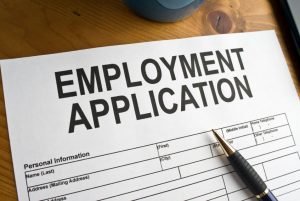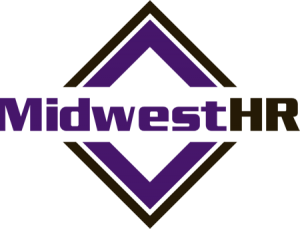
It is time, again, to review your application and interview process as more states are adding legislation prohibiting employers from asking about criminal history and past salaries.
Here are new laws going into effect this summer:
Ban the Box
Kansas City, MO Ban the Box
On February 1, 2018, Kansas City, MO became the newest jurisdiction to enact a ban the box regulation. Ordinance No. 180034 has taken effect on June 9, 2018.
- The law will prohibit all private employers with 6 or more employees, from:
- Inquiring about criminal history until a determination has been made that an individual is otherwise qualified for the position and only after the applicant has been interviewed for the position.
- Note: Such inquiry can be made for all candidates within the final pool of candidates from which the position will be filled from.
- Basing their hiring or promotional decision on a candidate’s criminal history or sentencing, unless the employer can demonstrate that the employment- related decision was based on all information available including consideration of the:
- Frequency
- Recentness and
- Severity of a criminal record and
- That the record was reasonably related to the duties and responsibilities of the position.
- Inquiring about criminal history until a determination has been made that an individual is otherwise qualified for the position and only after the applicant has been interviewed for the position.
Note: This law does not apply to positions where employers are required to exclude applicants with certain criminal convictions from employment due to local, state or federal law or regulation.
Violation remedies include reinstatement, back pay, actual damages and civil penalties.
Take away: Employers need to review their employment applications and relevant employment forms to ensure compliance with federal, state and local law, especially if using standardized form across multiple jurisdictions.
Washington State Ban the Box
On March 13, 2018, Washington State became the newest jurisdiction to enact a ban the box regulation. H.B. 1298 has taken effect on June 6, 2018.
- The law will prohibit all public and private employers from:
- Including any question on any application for employment;
- Inquiring either orally or in writing;
- Receiving information through a criminal history background check or;
- Obtaining information about an applicant’s criminal record until after the employer initially determines that the applicant is “otherwise qualified” for the position
- An applicant is considered “otherwise qualified” if he or she meets the basic criteria for the position as set out in any job advertisement or job description without consideration of a criminal record.
- Advertising any job opening in a way that excludes people with criminal records from applying.
- The Law allows an employer, after determining that an applicant is “otherwise qualified” to inquire or obtain information about the applicant’s criminal record.
- This law will not apply to:
- Any employer hiring a person who will or may have unsupervised access to children under the age of 18 or a vulnerable adult or person as defined elsewhere in state law;
- Any employer, including a financial institution, who is expressly permitted or required under any federal or state law to inquire into, consider, or rely on information about an applicant’s or employee’s criminal record for employment purposes;
- Certain law enforcement or criminal justice agencies;
- Employers seeking non-employee volunteers; or
- Any entity required to comply with the rules or regulations of a self-regulatory organization, as defined in section 3(a)(26) of the Securities and Exchange Act.
Note:
- The law should not be viewed as requiring any employer to provide accommodations or job modifications in order to facilitate the employment or continued employment of an applicant or employee with a criminal record or who is facing pending criminal charges.
- This law will have no impact on the more restrictive Seattle Ban the Box law.
Violations to this law:
- This law does not provide individuals with the right of action against a covered employer, but gives the power to enforce the law to the State Attorney General.
- The attorney general will have the authority:
- To investigate violations;
- To seek remedial relief for an individual
- To issue written civil investigative demands
- To adopt rules implementing the law
- To pursue administrative sanctions or a lawsuit in court for penalties, costs and attorney’s fees.
- To educate an employer found in violation, then warn them and then if the violations continue, to take legal action against them.
- Penalties:
- For the first violation, a notice of violation and offer of agency assistance.
- For the second violation, a monetary penalty up to $750.
- Subsequent violation, a monetary penalty up to $1,000.
- The attorney general will have the authority:
Take away: Washington State Employers need to review their employment applications and relevant employment forms to ensure compliance with federal, state and local law, especially if using standardized form across multiple jurisdictions.
Salary Restrictions
Massachusetts Salary History Restriction
- What to look out for?
- On August 1, 2016, the legislature of the Commonwealth of Massachusetts enacted the 2016 Chapter 177, which will go into effect on July 1, 2018.
- This bill formally prohibits discrimination in 2016 Chapter 177 now making it a discriminatory employment practice for an employer to:
- Seek the wage or salary history of a prospective employee from the prospective employee or a current or former employer or to require that a prospective employee’s prior wage or salary history meet certain criteria; provided, however, that:
- If a prospective employee has voluntarily disclosed such information, a prospective employer may confirm prior wages or salary or permit a prospective employee to confirm prior wages or salary; and
- A prospective employer may seek or confirm a prospective employee’s wage or salary history after an offer of employment with compensation has been negotiated and made to the prospective employee;
- Seek the wage or salary history of a prospective employee from the prospective employee or a current or former employer or to require that a prospective employee’s prior wage or salary history meet certain criteria; provided, however, that:
- Summary: The law applies to both current and former employers.
- Take away: do not inquire about salary unless a prospective employee has voluntarily disclosed the information or after an offer of employment with compensation has been presented and agreed upon by the prospective employee.
- Link to 2016 Chapter 177
San Francisco Salary History Restriction
- What to look out for?
- On July 19, 2017, San Francisco Mayer Ed Lee signed the Parity in Pay Ordinance (Article 33J), which prohibits employers from:
- Inquiring about an applicant’s salary history.
- Considering an applicant’s salary history as a factor in determining what salary to offer an applicant.
- Refusing to hire, or otherwise disfavor, injure or retaliate against an applicant for not disclosing their current or previous salary history to the employer.
- Releasing the salary history of any current or former employee to the applicant’s employer or prospective employer without written authorization from the current or former employee.
- Article 33J will take effect July 1, 2018.
- Nothing in this ordinance prohibits an applicant from voluntarily disclosing salary history following an employer’s initial salary offer in order to negotiate a different salary or prohibit an Employer from considering that applicant’s salary history in determining a counter-offer.
- San Francisco’s Office of Labor Standards Enforcement (OLSE) has the discretion on how to determine penalties.
- First violation which occurs at any time or for any violation occurring during the first 12 months, OLSE must issue a warning and notice to correct.
- Any subsequent violation after the 12 month period, OLSE may impose an administrative penalty of no more than $100 that the Employer must pay to the City for each employee or applicant as to whom the violation occurred.
- Any subsequent violations within the 12 month period, the penalty may increase to no more than $200 for the second violation and no more than $500 for each additional violation.
- Summary: This law applies to both current and former employers.
- Take away: do not consider or inquire about a candidate’s past or current salary history and prohibited from disclosing the candidate’s salary history without the candidate’s authorization.
- Link to Article 33J is here.
- On July 19, 2017, San Francisco Mayer Ed Lee signed the Parity in Pay Ordinance (Article 33J), which prohibits employers from:
Vermont Salary History Restriction
- What to look out for?
- The law will prohibit all Vermont employers from:
- Inquire about or seek information regarding a prospective employee’s current or past compensation from either the prospective employee or a current or former employer of the prospective employee;
- Require that a prospective employee’s current or past compensation satisfy minimum or maximum criteria; or
- Determine whether to interview a prospective employee based on the prospective employee’s current or past compensation.
- An employer may seek to confirm or request to confirm the information, only if a prospective employee voluntarily discloses information about his or her current or past compensation, and an employer makes an offer of employment with compensation to the prospective employee.
- Summary: The law applies to all employers.
- Take away: Employers can only confirm a candidate’s current or past salary history, after a conditional offer of employment has been extended to candidate.
- Link to the Bill is here.
- Effective July 1, 2018
- The law will prohibit all Vermont employers from:
MidwestHR provides applications and other hiring guidance and tools that are in full compliance with the law. Working with our certified HR Specialists will allow our clients to rest easy knowing that their forms and practices are in alignment with the laws in each of their worksite locations.

MidwestHR, LLC
A CERTIFIED Professional Employer Organization
(630) 836-3000